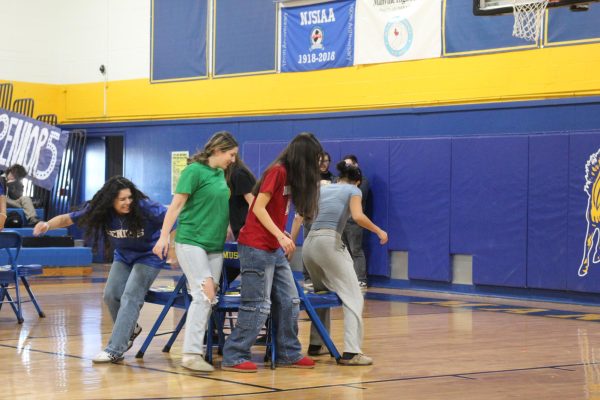A Seniors Guide on How to Pass High School
There have been times when the students of Manville High have stressed themselves out by attempting to balance their school work, jobs, and after school activities. Whether you are a football player, wrestler or even marching band member, you have to deal with the stress of keeping your grades up. These helpful tips will give you an idea on how to pass high school, whilst also keeping up with your everyday activities.
1.Find your study area.
Where you may be tempted to jump on the bandwagon ideas of studying at a desk at home or at the library, you don’t actually have to! Your study area is an area in which you feel you can study efficiently. Whether it is a park, your room, your garage or even your car! As long as you can study and get your homework done efficiently, it’s a good study area.
2. Get your textbooks.
If you have a textbook for APUSH or maybe even biology, make sure you keep track of them. They are actually helpful when you need information. In the age of technology, books are normally pushed aside so we can surf the web, but your textbooks actually hold all the information you need and it’s right in front of you.
3. Start studying for standardized tests.
If you’re a junior or senior, you’re going to be taking the SATs and ACTs soon. If you cram the night before, you’re most likely going to get a lower score. Buy the SAT study guide, sign up for test prep and talk to your counselor about how you can get the score you think you deserve.
4. Take regular breaks.
Studying for hours at a time without a break is the equivalent of cramming the night before the test, even if you’re days out. Breaks help your brain intake the information you just learned while also giving the rest of your body a chance to relax and recoup. Ways you can relax and de-stress are: Yoga, stretching, eating a light snack, going for a walk or even watching an episode from your favorite TV show. Rest and relaxation will help your body and your mind to decrease stress levels and intake information.
5. Last, but not least, make studying fun for you.
If you are the kind of person who needs to listen to music to study, do it! If you need to move around a lot, listen to your english book on Youtube or take a walk or a run, embrace it! If you like studying in a dimly lit room, who’s stopping you? However you decide to study, the most important thing is to make sure you can actually enjoy it while it’s happening. As long as you retain the information you’re reading, why shouldn’t you have some fun?











